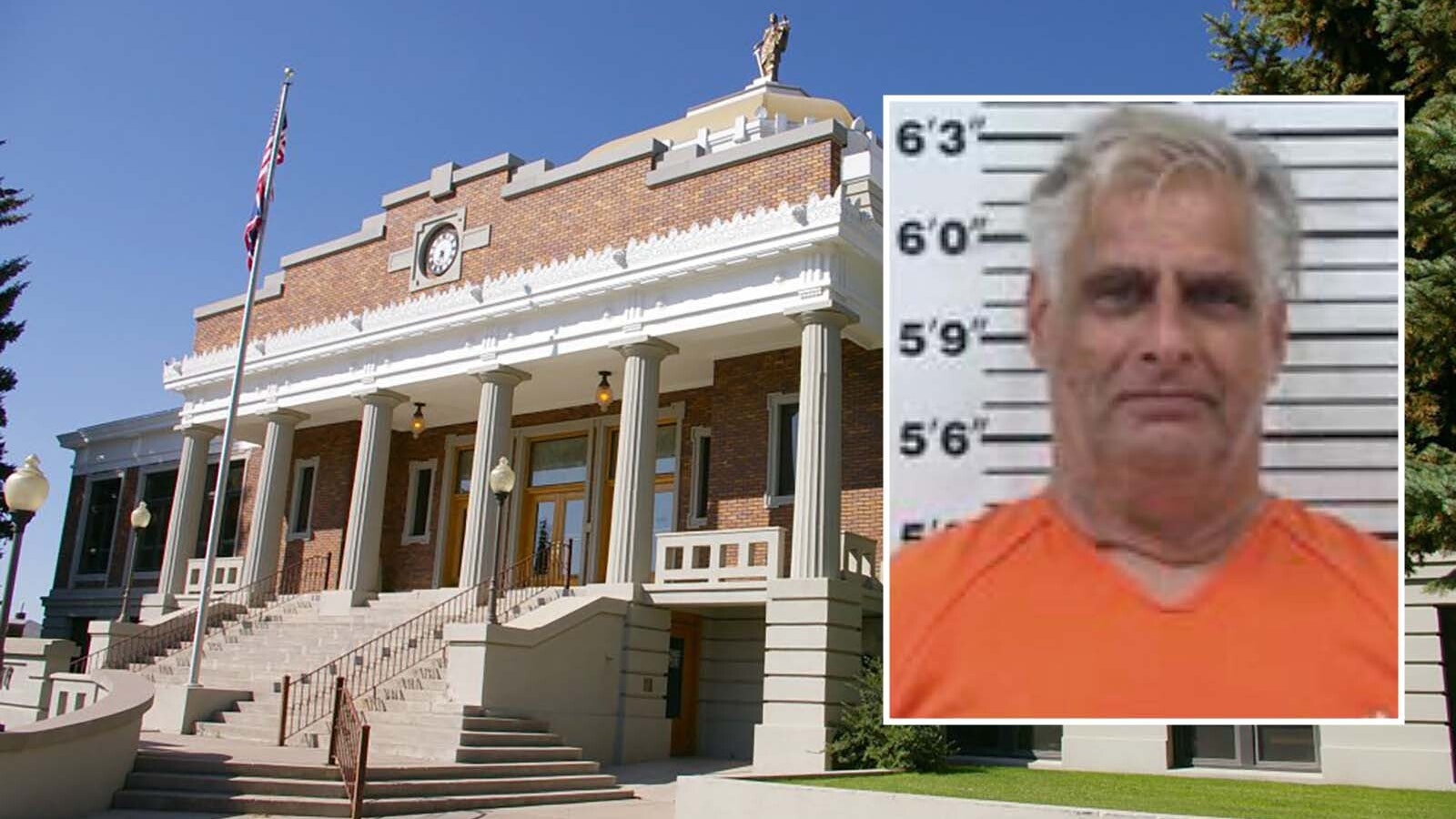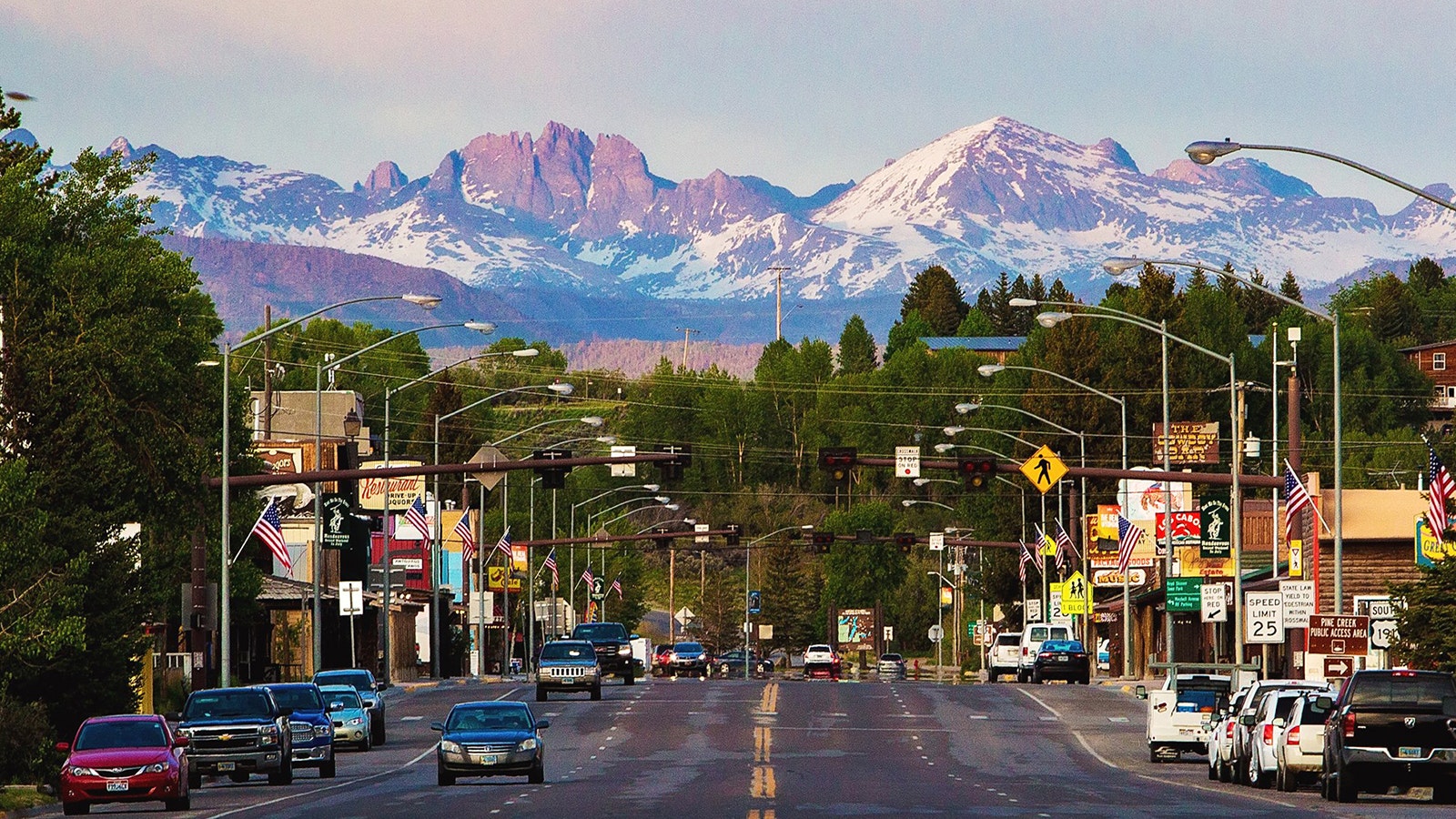The Wyoming Supreme Court on Monday rejected a convicted rapist’s argument that he went to prison for molesting two teenage sisters from Moorcroft because his defense attorneys were ineffective and the prosecutor failed to provide evidence that could have helped him.
John Byron Mills, 47, began serving a 71- to 85-year prison sentence last year after a jury convicted him of 10 sex crimes, including three counts of first-degree sexual assault, five counts of third-degree sexual abuse of a minor and two of sexual battery.
Mills challenged his convictions, claiming in an appeal to the Wyoming Supreme Court that the Campbell County prosecutor failed to produce evidence that could have shown the jury his innocence, that his defense attorneys were ineffective and that the state didn’t give sufficient evidence supporting his convictions in the rape case involving the older sister.
The high court rejected all three arguments in its Monday ruling.
Family Friend
Mills got to know the two sisters when one of his friends dated their mother, the ruling says.
In 2013 when the younger sister was either 14 or 15, she and her family were staying at a motel in Gillette.
Mills, who was about 38 then, also was staying at the motel. He walked into the girl’s room while she was getting ready to go swimming, undressed her and had sex with her, the ruling says.
The document continues, saying that in 2014 when the girl was either 15 or 16, Mills messaged her through Facebook and arranged to meet her in the Gillette Walmart parking lot. He drove her to a car wash, fondled her breasts and genitalia, undressed her and had sex with her.
Another time he messaged her, picked her up from her house in Moorcroft and took her to his house in Gillette to drink alcohol and watch Netflix. The high court’s ruling says he then performed various sex acts on and with the girl.
By Physical Force
Mills contacted the older sister through Facebook in September 2015, the ruling says. She would have been 18 or 19.
They agreed to meet at the Shell Food Mart in Gillette. Then they drove around in Mills’ white truck for a few hours. When they got back to the Shell station, the ruling says Mills asked the young woman to have sex with him.
She said no.
“He held her down in the corner of the truck cab, pulled her pants down, and performed various sex acts on her,” says the ruling.
He performed three different sex acts, and the jury convicted him on three counts of first-degree forcible sexual assault for the incident.
That’s Not Brady
The prosecutor charged Mills with 22 crimes against the two sisters, and the jury convicted him of 10. The district court judge sentenced him in March 2022 to 71-85 years in prison.
Mills in an appeal claimed the case prosecutor failed to produce exculpatory evidence in the case; namely, Facebook messages between Mills and the girls that may have shown the younger sister was 17, not 16 and younger, when the pair had sex. If she had been 17, the third-degree sexual abuse charges would not have applied.
The messages also may have undermined the victims’ credibility, Mills argued.
Mills referenced a 1963 U.S. Supreme Court case, Brady vs. Maryland, finding that prosecutors must disclose any exculpatory evidence they have to honor defendants’ due process rights.
But Wyoming and federal precedent both hold that prosecutors only violate the Brady rule if they suppress helpful evidence to which the prosecutor has access, but the defendant does not.
Mills would have been able to access his own Facebook messages, the high court reasoned, so the prosecutor didn’t skew the case by failing to offer them.
Because, Lawyers
Mills argued that his defense attorneys were ineffective and failed to give him the help a reasonably competent attorney would have at trial.
The attorneys failed to present the Facebook messages, failed to do a deeper investigation of Mills’ utility bills to see whether he lived in Gillette during the Gillette offenses and failed to find a photograph of his house from the year of one of the offenses, Mills claimed.
The Wyoming Supreme Court refuted all three arguments.
Mills’ appeal didn’t include specifics on the contents of the Facebook messages or their dates, the ruling says, so he failed to prove that the missing evidence would have helped him.
“Without that crucial information, we do not know whether the messages would have supported Mr. Mills’ defense,” the ruling says. “Mills failed to demonstrate counsel performed deficiently by failing to secure the messages or the absence of the evidence prejudiced his defense.”
Some Back And Forth
Mills argued that his attorneys should have done more to show that he didn’t have sex with the younger sister in 2013 or 2014 by digging into his home utility bills to show that he didn’t live in Gillette during that time.
The high court noted that the 2013 offense happened in a motel room, so whether he lived in Gillette was immaterial. Mills’ father testified that Mills lived in Vernal, Utah, in 2013 and moved to Cheyenne later that year.
Mills moved to Gillette in June 2014, according to court testimony and the utility records.
The Color Of This House
One piece of trial evidence was the younger sister’s testimony that Mills’ house was brown when he sexually abused her in 2014.
The prosecutor presented a photograph of Mills’ house, painted brown, as evidence.
Mills’ father had testified, conversely, that the house was white in 2014 and wasn’t painted brown until 2016, when the girl would have been over the age of 17 and not considered a victim under the third-degree sexual abuse statute.
Mills claimed his attorneys failed him by not showing what color his house was in 2014.
But this argument, the high court reasoned in its order, relies on the idea that such photographs exist.
“There is no evidence in the record that any such photographic evidence exists,” says the ruling. “Without such proof, Mr. Mills has not shown his counsel performed deficiently or his defense was prejudiced by the failure to present the evidence at trial.”
Proof Of Attack
Lastly, Mills claimed on appeal that the prosecutor didn’t present enough proof that he forced the older sister down in his truck and had sex with her orally, digitally and vaginally.
The defense showed photos of the Shell parking lot, fully lit at night, to cause the jury to question whether such an act would have happened.
The defense also tried to show that the older sister had sexual encounters with Mills on other occasions.
Finding the forcible sexual assault on these facts was within the jury’s purview, the high court decided.
“We have no difficulty affirming Mr. Mills’ convictions for first-degree sexual assault against (the older sister),” the ruling says.
Clair McFarland can be reached at clair@cowboystatedaily.com.





